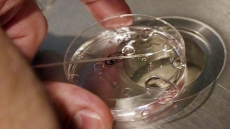E-cigarette vaping with nicotine not only hampers mucus clearance from the airways, but also increases the risk of chronic bronchitis, warn researchers.
A single session of vaping can deliver more nicotine in the airways than smoking one cigarette, warned researchers in a study published in the American Journal of Respiratory and Critical Care Medicine.
"The question was whether vape containing nicotine had negative effects on the ability to clear secretions from the airways similar to tobacco smoke," said Matthias Salathe, senior author of the study and Professor at the University of Kansas.
The study's findings showed that vaping with nicotine impaired ciliary beat frequency, dehydrates airway fluid and made mucus more viscous or sticky.
These changes make it more difficult for the bronchi, the main passageways to the lung, to defend themselves from infection and injury.
"Vaping with nicotine is not harmless as commonly assumed by those who start vaping. At the very least, it increases the risk of chronic bronchitis," Salathe said.
The researchers observed that exposing human airway cells to e-cigarette vapour containing nicotine resulted in a decreased ability to move mucus or phlegm across the surface. This phenomenon is called "mucociliary dysfunction."
Mucociliary dysfunction is a feature of many lung diseases, including asthma, chronic obstructive pulmonary disease (COPD) and cystic fibrosis.
For the study, the researchers tested the effects of nicotine-containing e-cigarette vapours on airway mucociliary function in differentiated human bronchial epithelial cells (HBECs) and sheep, whose airways mimic those of humans when exposed to e-cigarette vapour.
The researchers concluded that nicotine produced these negative effects by stimulating the ion channel transient receptor potential ankyrin 1 (TRPA1). Blocking TRPA1 reduced the effects of nicotine on clearance in both human cells in culture and in the sheep.





